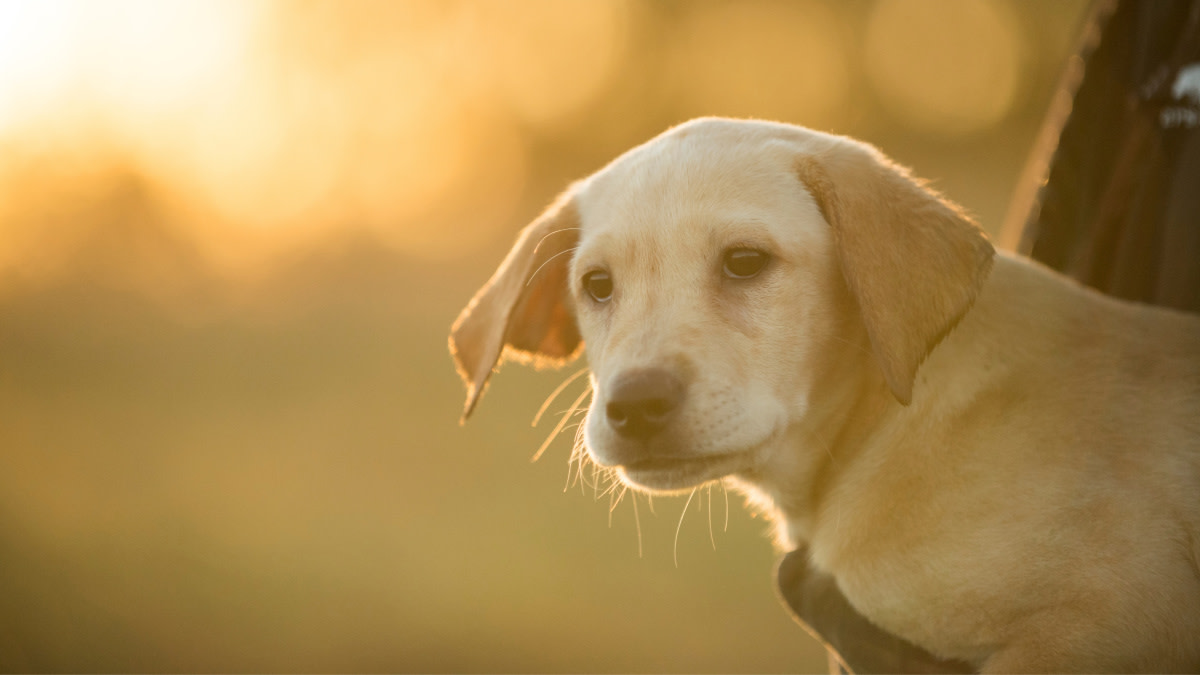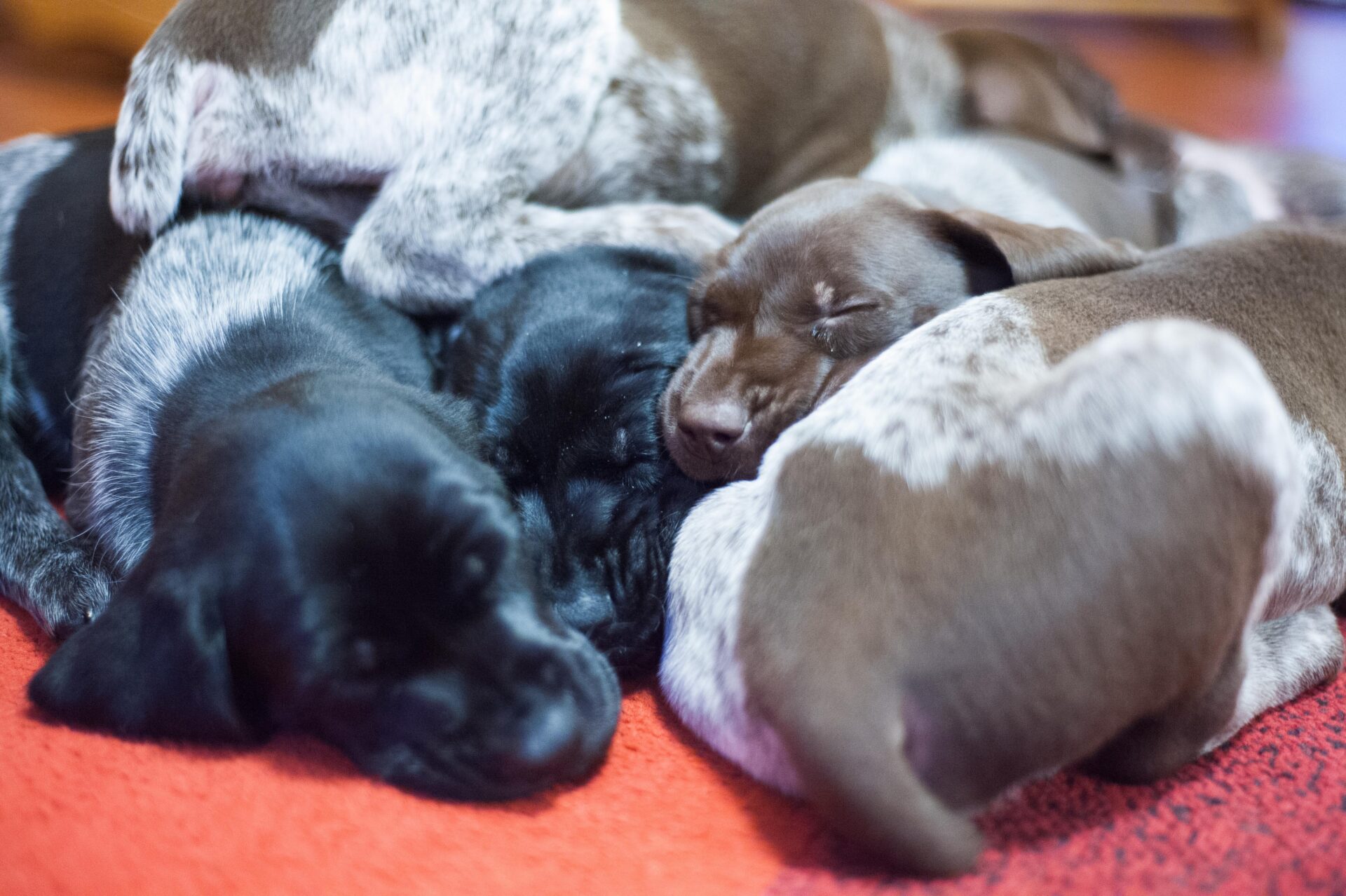
Picking a puppy from a litter should be an exciting experience, but in the moment it’s easy to get blinded by the collective cuteness of a pile of baby bird dogs. Speaking from personal experience as a self-diagnosed sucker for puppies, you have to maintain a level head and a critical eye when selection day arrives.
Don’t stress, though. By the time this moment finally comes, you’ve done most of the difficult work already. You’ve undoubtedly researched a reputable breeder and chosen a pairing of quality, tested parents, so you’re already poised to beat the house odds for taking home a top-notch bird dog.
Form Follows Function
The concept that form follows function rings true for bird dogs. Set yourself up for success by having reasonable expectations for what job your new pup will perform. If you aspire to own a show ring contender, don’t expect to find that pup from a long pedigree of field or trial dogs, or vice-versa.
Regardless of whether you or the breeder picks your puppy, the selection process should focus on transparency. Be upfront about your aspirations for this little bundle: Let the breeder know what your goals are and whether breeding this pup down the road is a possibility. Likewise, the breeder should offer a convincing explanation as to which pup they recommend based on your needs and preferences.
Responsible Breeder Checklist
Pups should go to their new homes no earlier than 7 weeks old, but preferably 8 or 9 weeks for full social development. While tending to newborns is a lot of work for breeders, the last few weeks after weaning are exhausting and involve a great deal of wrangling and bathroom cleanup.
If a breeder is pushing for an earlier departure, I begin to question their commitment to the hard work of raising a litter of pups and whether their objectives include anything other than financial gain.
As a vet and bird dog owner, I often take note of whether the front dew claws were removed and if the pup’s tail was docked where appropriate. If the dew claws remain, I want that to be a conscious choice by the breeder (there is an unsettled debate as to whether the front dews provide some function in mobility), otherwise it suggests negligent oversight or penny-pinching. Back dews should always be removed or you’ll undoubtedly deal with a traumatic removal in the field later on.
As a shorthair enthusiast, I love the look of a clean, docked tail. When I come across a scarred, hairless nub, it suggests the breeder didn’t care enough to learn to do it correctly or was too focused on cutting expenses to get a professional involved.
Conformation
In the initial exam, I take special care to evaluate the shape and position of the legs and feet, paying attention to limbs that bow inward or curve outward. Major abnormalities in gait or structure will be obvious, but even minor issues can lead to early arthritis and impact the pup’s time in the field. Don’t settle, even if you’re offered a good deal.
Pups should be screened for a pronounced over- or under-bite and the presence (or absence) of their normal deciduous (baby) teeth. Not only will it penalize you in the show ring or with certain clubs that require approval for breeding, I’ve seen complications with dental disease emerging from these abnormalities.
The Puppy Exam
By the time you take your puppy home at 7 to 10 weeks, the males should have both testicles descended into the scrotum. Even if you have no intention of breeding him down the road, undescended testes is a heritable defect that will require surgical correction, as the undescended testicle will be at a high risk of becoming cancerous. If the breeder is adamant that the males out of their lines are “late bloomers” in terms of testicle descension and not to worry, that is your cue to, indeed, start worrying.
Male and female pups should be clean and clear around their ears and rears. Excessively waxy, red or dirty ears in a young pup could mean a lifetime of ear infections that become tedious and expensive to manage. Dirty butts suggest shortcomings in breeder husbandry, parasites, or illness.
When I’m examining a pup at its first vet visit, I gain confidence when I see adequate deworming protocol, veterinary exam, and a veterinarian-administered vaccination in the dog’s medical history. The latter is not a requirement if a breeder is skilled in administering injections and there’s evidence that the vaccine has been kept cool and given at an appropriate time.
Don’t Take the Runt
If you’re following a particular breeding from conception to weaning, don’t allow yourself to be drawn to the runt. Most of the smallest pups of a particular litter go on to have normal, healthy lives, especially if they survived that volatile first week outside the womb. But I cringe when puppy buyers are drawn to a tiny, slow-growing, or otherwise sickly pup out of sympathy, or more often to satisfy the desire to own a smaller dog.
If that sounds cold hearted, understand that I’m basing my recommendation on emotionally and financially painful scenarios. Many times over I’ve encountered owners that were hopelessly bonded to a new pup with conditions that ultimately were not compatible with life.
Conclusion
Your best assurance of bringing home a quality pup comes from investing in good genetics and health-tested parents. While paying more is certainly no guarantee of quality, it does require an incredible amount of time and money to produce top-shelf hunting dogs. The best breeders don’t want to tarnish their hard-earned reputation by sneaking a train-wreck puppy past unsuspecting buyers. If you’re getting that vibe, cut your losses and move on.
Research and build a relationship with breeders who inspire confidence in your purchase and commitment, even if you have to put away funds for a year or impatiently endure time on a wait list. Keep in mind that your purchase price is only a small fraction of what you’ll invest over this pup’s lifetime.
Feature image via John Hafner.






Conversation